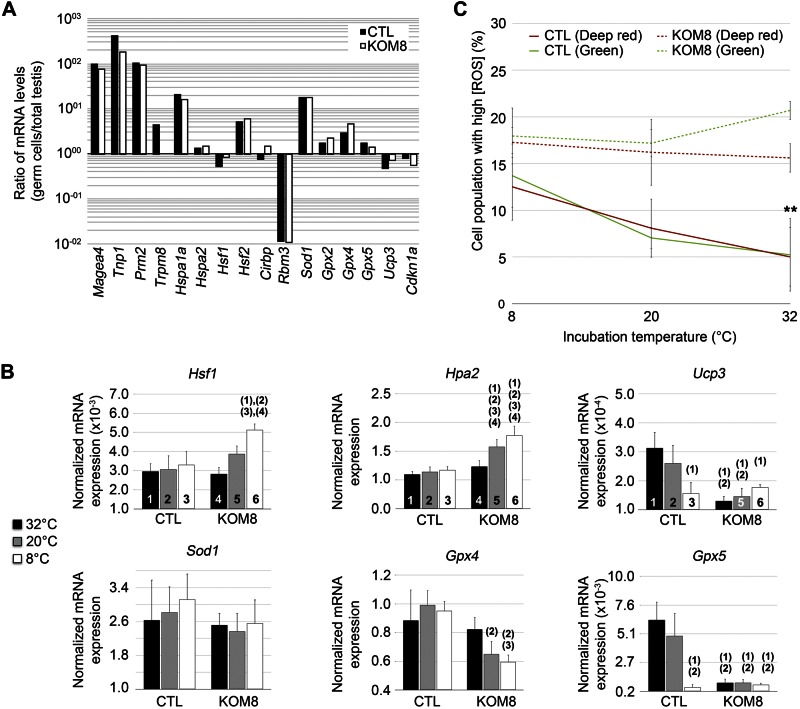Figure 6.
Cold-induced TRPM8 channel activity triggers cold shock response and ROS production. A) Expression level of genes of interest in freshly isolated germ cells from either Trpm8+/+ (CTL; black bars) or Trpm8−/− mouse line (KOM8; white bars). Values are expressed as the ratio of gene expression on total mouse testis expression. Rbm3 was the sole gene with drastically decreased expression in isolated germ cells. Conversely, Hspa1a, Hsf2, Sod1, and Gpx2 exhibited a preferential expression in germ cells. B) Real-time based quantification of mRNA levels of Hsf1, Hspa2, Ucp3, Sod1, Gpx4, and Gpx5 in freshly isolated CTL or KOM8 mouse germ cells subjected to a 1-h incubation at 8, 20, or 32°C. Statistical significance (1-way ANOVA) was assumed when P < 0.05 and is shown above the tested column as the number of the CTL column it is paired to. C) Freshly isolated mouse germ cells were loaded with the nuclear CellROX Green Reagent and the cytosolic/mitochondrial CellROX deep Red Reagent before being subjected to a 1 h cold shock (8°C and 20°C) or kept at CTL temperature (32°C). Cytometer analysis reveals a significant cold-dependent accumulation of ROS in CTL germ cells, whereas stable ROS concentration was observed in KOM8 germ cells. Values are expressed as means ± sd for CTL (n = 4) and KOM8 (n = 4) mice. Statistical analysis was achieved with a t test.

